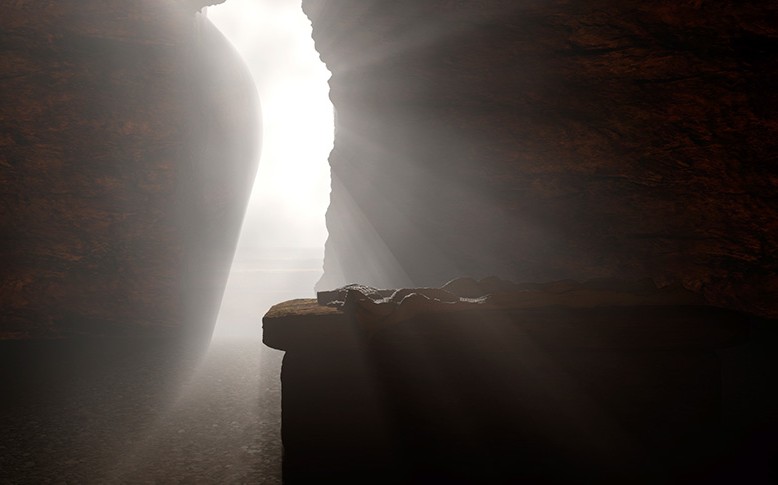The environment is big news in our day and time. News of pollution, oil spills, wildlife preservation, and the like, invade the news and media outlets. Some environmental issues have been shrouded in politics, such as global warming, fracking, Alaskan oil lines, and et cetera. Evangelical Christians have often taken one of two extremes. Some conservative evangelicals have remained skeptical of environmentalism as they see the movement as a liberal agenda, whereas other more moderate and liberal evangelicals have maintained that environmentalism is the most pressing issue of the modern time. It seems to me, at least, that there needs to be a healthy balance between the two extremes. But, this brings to mind a few questions. First, what is meant by environmentalism? Second, what does the Bible say the role of a faithful believer is concerning the environment? Finally, what role does the environment hold in relation to God’s final work?
What is meant by “environmentalism?”
According to Merriam-Webster dictionary, two definitions define the term environmentalism. First, environmentalism is defined as “a theory that views environment rather than heredity as the important factor in the development and especially the cultural and intellectual development of an individual or group” [1] and as an “advocacy of the preservation, restoration, or improvement of the natural environment especially: the movement to control pollution.”[2] In the case of this subject, the second definition will be used. Thus, environmentalism is to be understood as one who is seeking to preserve the environment.
What is the role of the believer in relation to the environment?
Often, environmentalism becomes a difficult topic due to its political nature. Nevertheless, in order to find what a believer’s role to the environment is, one needs to examine the Scriptures. When God first created humanity, Genesis states that “the LORD God took the man and put him in the garden of Eden to work it and keep it” (Genesis 2:15).[3] The Hebrew term translated word is “abad” which means “to compel to labour or work, cause to labour, cause to serve.”[4] The Hebrew term translated “keep” is the term “shamar” which means to “keep, guard, or protect.”[5] Later in the biblical passage, humanity had the responsibility of naming the animal kingdom. Thus, the Bible seems to suggest that humans are intended to be the caretaker of the environment that God has established. Cross and Livingstone have denoted that “More recently, ‘stewardship of creation’ has been a theme of theological response to environmental issues.”[6] This “stewardship” is exactly the role that humans need to take in relation to the environment. However, it must be noted that as humans engage in the preservation and care-taking of the environment, one must not forget that the primary role of humankind is to glorify God (Ecclesiastes 12:13) and to love humanity (Matthew 22:37-40). The environment is important, but do not place a mouse over the possession of a house or the safety of a gibbon over that of a human. (Yes, I have probably read one too many Dr. Seuss books as I have rhymed, on a dime, this particular time.)
What role does the environment play in God’s final work?
Lastly, one needs to put the environment in context to God’s final work. The world is not a perfect place. It wasn’t necessarily intended to be that way at this particular time. For God in His sovereignty is working to make all things new. As we obtained information from the Bible’s first book (Genesis), it is also important to keep this issue of the environment in perspective as it relates to the final book of the Bible (Revelation). What will come of the environment? Before peering into Revelation, Peter notes that “the heavens and earth that now exist are stored up for fire, being kept until the day of judgment and destruction of the ungodly” (2 Peter 3:7). Revelation notes that in the end, God will create a “new heaven and a new earth, for the first heaven and the first earth had passed away, and the sea was no more” (Revelation 21:1). Thus, it must be remembered that nothing in this world will last forever. There is a day of judgment which will result in the extinction of the current universal structure at some point in time.
Conclusion
The environment should be an important issue for the Christian. The Christian should strive to be a good steward of the creation that God has given. It is certainly disrespectful to the Creator to harm the creation that God has established. Let’s be honest. To quote Louis Armstrong, it truly is a “wonderful world.” But, the Christian should also understand that this universe and everything in it will one day come to its conclusion. Only eternal things will last forever. What are those eternal things? Eternal things are those things related to our Eternal Creator: the love of God, the love of family, and the love of one’s neighbor. These things will transcend into the new creation that God has promised to create. Then, those who are of God will truly sing “what a wonderful world!”
Bibliography
Cross, F. L., and Elizabeth A. Livingstone, Editors. The Oxford Dictionary of the Christian Church. Oxford; New York: Oxford University Press, 2005.
Merriam-Webster’s Collegiate Dictionary. Springfield, MA: Merriam-Webster, Inc., 2003.
Strong, James. Enhanced Strong’s Lexicon. Bellingham, WA: Logos Bible Software, 2001.
© 2015. Brian Chilton.
Footnotes
[1] Frederick C. Mish, “Environmentalism,” Merriam-Webster’s Collegiate Dictionary. (Springfield, MA: Merriam-Webster, Inc., 2003).
[2] Ibid.
[3] Unless otherwise noted, all Scripture comes from the English Standard Version (Wheaton: Crossway, 2001).
[4] James Strong, Enhanced Strong’s Lexicon (Bellingham, WA: Logos Bible Software, 2001).
[5] Ibid.
[6] F. L. Cross and Elizabeth A. Livingstone, eds., The Oxford Dictionary of the Christian Church (Oxford; New York: Oxford University Press, 2005), 1554.





